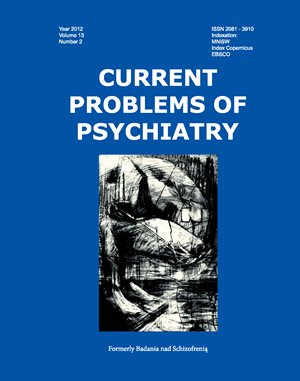Skąd nauczyciele czerpią wiedzę na temat cukrzycy?
Słowa kluczowe:
nauczyciele, wiedza, szkoleniaAbstrakt
Cukrzyca jest jedną z najczęściej występujących chorób przewlekłych, a zapadalność na to schorzenie stale wzrasta. Zjawisko to wiąże się z coraz częstszym pojawianiem się problemu opieki nad dzieckiem w placówkach oświatowych. Największym zagrożeniem dla zdrowia i życia uczniów są niedocukrzenia. Celem badania była ocena zainteresowania nauczycieli problemem cukrzycy typu 1 u uczniów oraz określenie źródeł, z których nauczyciele czerpią wiedzę na temat choroby. Zbadano 581 nauczycieli szkół podstawowych i ponadpodstawowych (476 kobiet i 105 mężczyzn) w województwie lubelskim i podkarpackim. Badanie przeprowadzono przy pomocy kwestionariusza autorskiego zawierającego pytania otwarte i półotwarte. Analizie poddano odpowiedzi na pytania otwarte dotyczące przyczyn cukrzycy i przyczyn niedocukrzenia. 24,8% respondentów nie wykazywało żadnego zainteresowania zdobywaniem wiedzy na temat cukrzycy. Ankietowani najczęściej czerpali wiedzę na temat cukrzycy z prasy, książek, ulotek i broszur informacyjnych (53.8%), internetu (36.6%) i programów telewizyjnych (31,7%). Wśród nauczycieli biologii stwierdzono większe zainteresowanie zdobywaniem wiedzy na temat cukrzycy, a także wyższy poziom wiedzy na temat choroby. Ze względu na deklarowane przez nauczycieli wykorzystywanie źródeł takich jak prasa, internet czy programy telewizyjne należałoby zastanowić się nad stworzeniem odpowiednich materiałów szkoleniowych adresowanych do tej grupy zawodowej. Okresowe szkolenia z udziałem lekarzy czy edukatorów medycznych mogłyby sprzyjać konsolidowaniu i sprawdzaniu zdobytej samodzielnie wiedzy.Bibliografia
1. Sobel-Maruniak A., Grzywa M., Orłowska-Florek R., Staniszewski A. The rising incidence of type 1 diabetes in south-eastern Poland. A study of the 0–29 year-old age group, 1980–1999. Endokrynol Pol. 2006;57:127-130.
2. Nowakowski A. Epidemiology of diabetes. Diabet Prakt. 2002;3:181–185.
3. http://www.internetstandard.pl/news/351350/Wyszukiwarka.kompendium.wiedzy.medycznej.html
4. Diaz J.A., Griffith R.A., Ng J.J., Reinert S.E., Friedmann P.D., Moulton AW. Patients' use of the Internet for medical information. J Gen Intern Med. 2002;17:180-185.
5. Thangaratinam S., Barnfield G., Weinbrenner S., Meyerrose B., Arvanitis T.N., Horvath A.R., Zanrei G., Kunz R., Suter K., Walczak J., Kaleta A., Oude Rengerink K., Gee H., Mol B.W., Khan KS. Teaching trainers to incorporate evidence-based medicine (EBM) teaching in clinical practice: the EU-EBM project. BMC Med Educ. 2009;9:59.
6. Radjenovic D., Wallace F.L. Computer-based remote diabetes education for school personnel. Diabetes Technol Ther. 2001;3:601-607.
7. Chmiel-Perzyńska I., Derkacz M., Szyprowska E., Grywalska E., Kowal A. Uczeń chory na cukrzycę. Postępowanie w przypadku hipoglikemii. Broszura informacyjna dla nauczycieli. Wyd. Bioton S.A. 2009.


